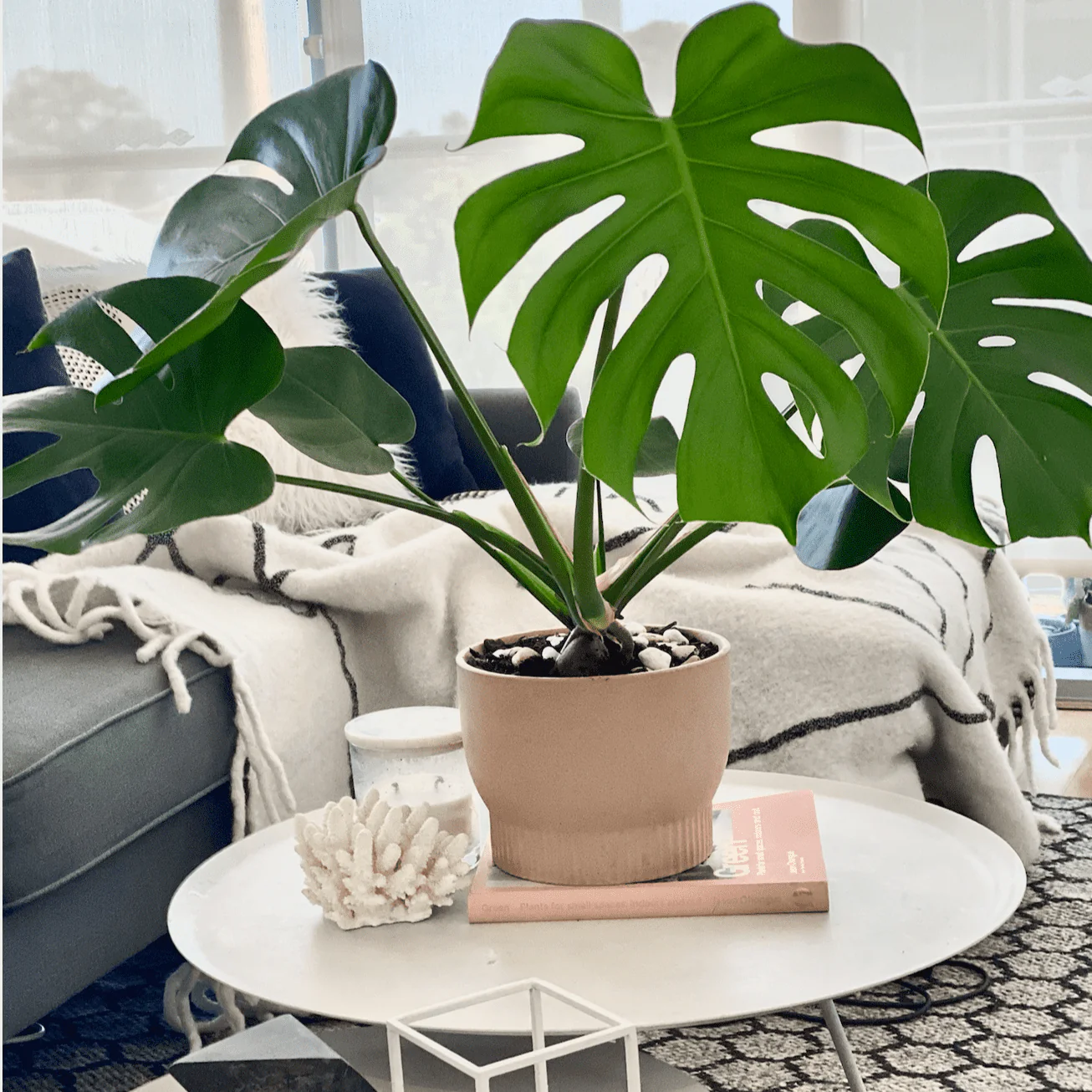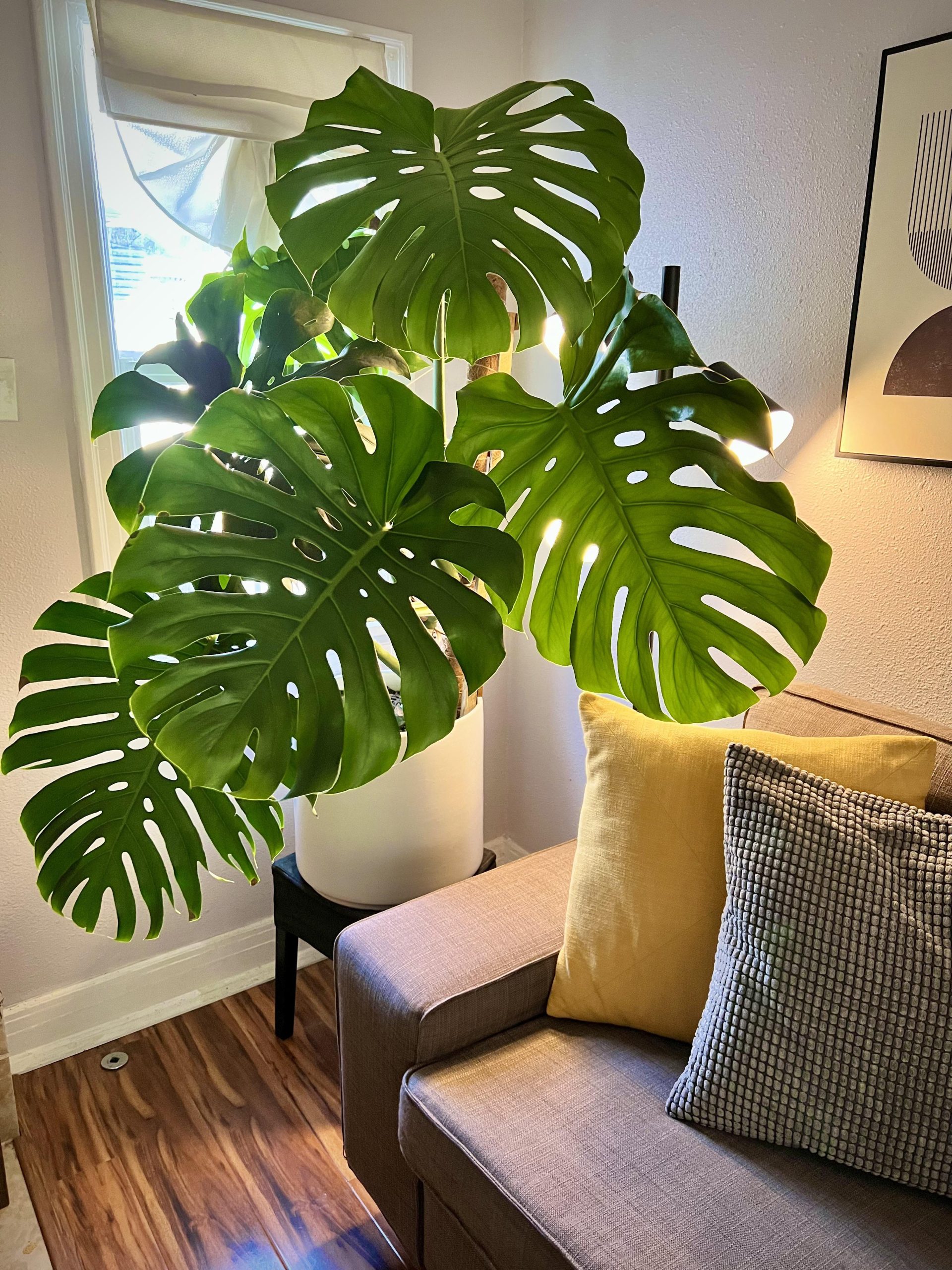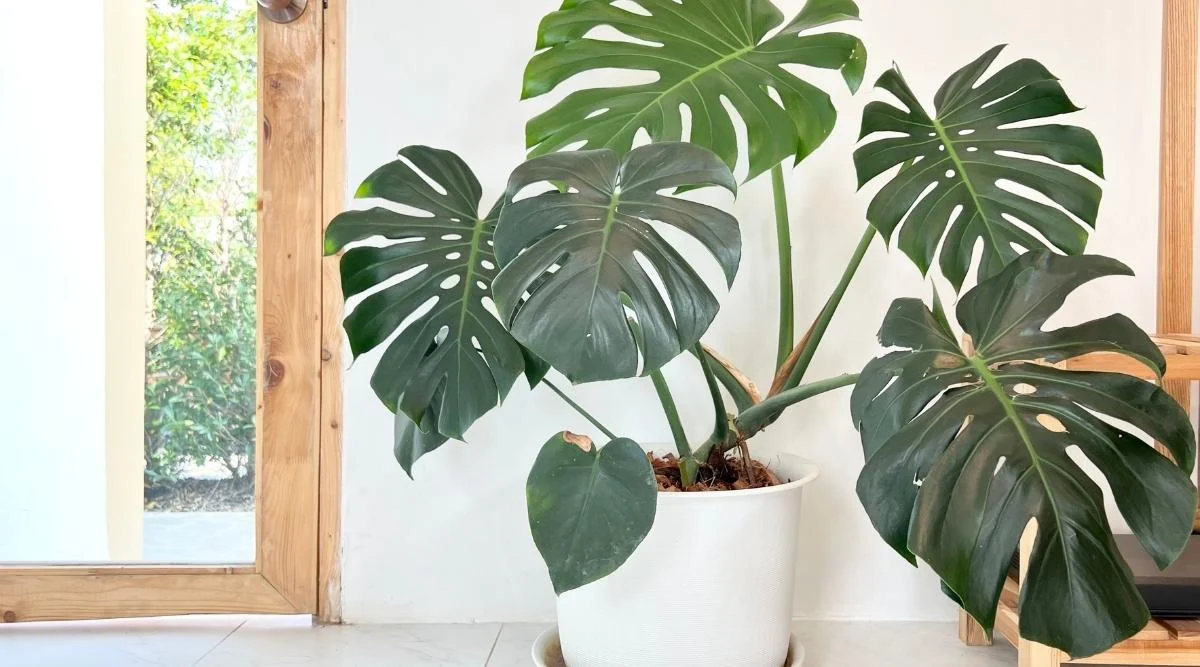Benefits of Monstera Plants
Air Purifying Qualities
Monsteras are excellent air purifying plants. Their large, perforated leaves are able to absorb toxins and clean the surrounding air efficiently in two key ways:
Removing Toxins
Monsteras can help remove toxins from indoor air, including formaldehyde and benzene. Formaldehyde is commonly found in pressed wood products like furniture and flooring, while benzene is emitted from paints, solvents, and smoking. This ability is shared with other plants like Aglaonema and Homalomena

Increasing Humidity
In addition to removing toxins, Monsteras transpire large amounts of water through their leaves into the surrounding environment. This increases humidity and helps counteract the overly dry air created by heating and cooling systems. Increased humidity is beneficial for human health and comfort. Plants like Epipremnum and Philodendron also help increase indoor humidity.
Low Maintenance
Monsteras are relatively easy to care for compared to other houseplants, making them quite popular for indoor gardeners of all levels. Here's why they require minimal maintenance:
Tolerates Various Light Levels
Monsteras tolerate a wide range of light levels. They can do well in bright, indirect light and even lower light areas. Their versatility makes it easy to find a suitable spot in any home. This adaptability is also seen in plants like Scindapsus and Zamioculcas zamiifolia – ZZ plant.
Infrequent Watering
Although Monsteras like consistently moist (but not soggy) soil, they only require watering once every 7-10 days on average. Their waxy leaves help conserve moisture. This quality makes them quite forgiving if you occasionally forget to water. Other plants like Sansevieria and Hoya Plants share this low-maintenance watering requirement.
Resilient Nature
Monsteras are durable plants that can bounce back if conditions are less than ideal for short periods. Their resilience to occasional neglect makes them easier to care for than more delicate species. Similar resilience is found in Syngonium and Dischidia.

"Explore the Exceptional 2023 Monstera Variegata Collection: A Curated Selection of the Rarest and Most Unique Varieties Available."
Compact Fruit Production
Although slow growing as houseplants, monsteras will eventually produce edible fruit if allowed to mature over time. The fruit resembles a mini banana and tastes similar to pineapple and banana. While yields will be small, the unique fruit can add interest.
Fun Conversation Piece
The compact fruiting bodies, which emerge from unique structures on the plant's stems, can inspire curiosity and conversation among visitors unaware that this houseplant can bear fruit indoors.
Tropical Appeal
The appetizing tropical fruit adds to the jungle-like appeal of the monstera's aesthetic. Caring for a fruiting monstera allows you to enjoy an edible plant native to the rainforests of Central America right in your living space.

Striking Foliage
Monsteras are most prized for their iconic split and hole-covered leaves. Their foliage provides visual interest and a tropical look popular in home décor and office spaces. Plants like Alocasia and Anthurium also offer striking foliage that enhances indoor aesthetics.
Distinctive Look
The monstera's split leaves are reminiscent of Swiss cheese. This distinctive aesthetic makes the monstera a popular statement plant that stands out from common green foliage.
Evergreen Nature
Monsteras keep their foliage year-round, though leaves reach their peak size and hole coverage as they mature over time. Their evergreen nature provides appealing greenery throughout the seasons when other plants lose their leaves.

Versatile Placement
Monstera plants suit a range of decorative spaces, adding a lively accent wherever they're positioned. Their versatility as a houseplant makes them a great choice for improving different areas. This versatility is also seen in Platycerium (fern) and Rhaphidophora.
Floor Plant
A monstera has ample spread to occupy floor space as a featured floor plant. Place next to seating areas to draw attention.
Shelving
The vines can trail over the edges of shelving and cabinets, creating a living green accent above eye level. Drape vines over bookcases, sideboards, or kitchen shelves.
Table Centerpiece
A potted monstera also works nicely as a centerpiece on dining, coffee, side, and office tables. It becomes a focal point of interest.

Monstera species are the most sought after by aroid plant lovers
Conclusion
With their jungle-inspired look, air-purifying abilities, and relatively simple care, monstera plants offer many worthwhile benefits as indoor plants beyond basic beauty. Monsteras clean the air while refreshing spaces with lush greenery, fruit, and distinctly holey foliage. Their versatility also makes them a great way to embellish a range of home and office spaces. Adding a monstera houseplant brings rewarding returns for little required effort.
FAQs
Do Monstera plants purify the air? Yes! Monstera plants, like many other houseplants, can help improve indoor air quality. They absorb carbon dioxide and release oxygen through photosynthesis. Additionally, some studies suggest that Monstera plants may help remove certain toxins from the air, such as formaldehyde and benzene.
Do Monstera plants increase humidity? Yes, Monstera plants can increase humidity levels in your home. Through a process called transpiration, they release moisture vapor into the air through their leaves. This can be especially beneficial in dry environments or during winter months when indoor air tends to be drier.
Are Monstera plants easy to care for? Monstera plants are generally considered to be relatively easy to care for, making them a popular choice for both beginner and experienced plant owners. They tolerate a range of light conditions and don't require frequent watering.
Do Monstera plants have any cultural significance? In some cultures, Monstera plants are believed to bring good luck and fortune. Their large, fenestrated leaves are also often used in art and design, symbolizing tropical beauty and abundance.
Can Monstera plants help reduce stress? While not scientifically proven, many people find that having plants in their home, including Monstera plants, can have a calming and stress-reducing effect. The act of caring for plants and being surrounded by nature has been linked to improved mood and well-being.
https://greenboog.com/benefits-of-monstera-plants-in-your-home/
Nhận xét
Đăng nhận xét